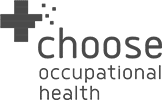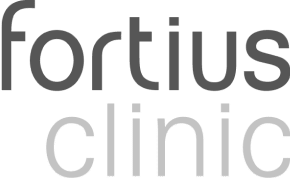In healthcare, maintaining regulatory compliance is both essential and challenging. From safeguarding patient data to adhering to ethical and legal standards, compliance serves as a foundation for trust and quality in patient care. With the stakes high and penalties for non-compliance substantial, healthcare practices must prioritise efficient compliance management.
Meddbase, a cloud-based electronic health record (EHR) platform, provides healthcare organisations with a streamlined solution that integrates compliance features directly into its core functionality. By automating many compliance-related tasks, Meddbase enables healthcare providers to focus on delivering quality patient care without compromising regulatory standards.
The Importance of Compliance in Healthcare
Compliance in healthcare is fundamental for several key reasons:
- Patient Data Security: Regulations such as HIPAA (for U.S. patients) and GDPR (for EU/UK patients) mandate strict data privacy protections. Securing patient information is not just legally required; it is critical to patient trust.
- Quality and Ethical Standards: Compliance ensures that healthcare providers adhere to a high standard of care, which directly impacts patient outcomes and overall healthcare quality.
- Financial and Legal Risks: Non-compliance can result in substantial fines, legal actions, and damage to a practice’s reputation. In the case of HIPAA or GDPR violations, even minor infractions can lead to significant penalties.
By implementing a robust EHR platform like Meddbase, healthcare practices can automate and simplify their compliance processes, reducing risks and improving patient data management.
How Meddbase Supports Regulatory Compliance
Meddbase was developed with healthcare compliance as a top priority, making it an effective tool for practices of all sizes. Here are key features that make Meddbase a valuable compliance partner:
- Secure Cloud-Based Infrastructure
- Meddbase’s secure, cloud-based platform includes encryption and advanced access controls to protect patient data. Authorised staff can access information securely from any location, facilitating remote work or multi-location practices.
- The system is designed to meet HIPAA and GDPR standards, giving providers confidence in their compliance across regions.
- Automated Compliance Tools
- Meddbase automates critical compliance functions, such as maintaining access logs, storing consent documentation, and monitoring data access. This automation reduces human error and ensures compliance with GDPR, HIPAA, and other regional data protection regulations.
- With built-in tools, healthcare providers can quickly locate records, verify data security practices, and track updates to patient information.
- Integrated Practice Management
- Meddbase consolidates scheduling, billing, patient record management, and communication in one platform, reducing reliance on multiple systems and minimising data transfer risks.
- A single, unified system improves operational efficiency and compliance accuracy by ensuring all patient information is accessible, current, and secure.
- Audit and Reporting Features
- Meddbase offers robust auditing and reporting capabilities, allowing practices to perform regular internal reviews and prepare for external audits. By maintaining detailed logs and compliance reports, practices are well-prepared to meet regulatory requirements and address potential issues proactively.
Key Healthcare Regulations to Understand
To maintain compliance effectively, healthcare providers should be familiar with these foundational regulations:
- HIPAA (Health Insurance Portability and Accountability Act)
Applies primarily in the United States, where HIPAA governs the handling, storage, and transfer of patient data, with an emphasis on privacy and security. - GDPR (General Data Protection Regulation)
Applicable in the EU and UK, GDPR mandates stringent data protection practices, granting individuals rights over their data. Non-compliance can result in severe penalties, including fines up to 4% of annual revenue. - CQC Standards (Care Quality Commission)
The CQC regulates health and social care in the UK, ensuring that practices meet high standards of safety and quality. - Data Protection Act (UK)
Similar to GDPR, the Data Protection Act enforces data privacy standards for patient information in the UK.
Understanding and adhering to these regulations is critical, and an EHR platform like Meddbase can help healthcare providers stay informed and compliant across jurisdictions.
Best Practices for Compliance in Healthcare
Maintaining compliance in healthcare involves proactive strategies and reliable tools. Here are practical steps for practices aiming to stay compliant:
- Invest in a Compliance-Centric EHR
A comprehensive EHR system such as Meddbase includes essential compliance features, from secure data storage to automated tracking of patient consent. By consolidating operations into one platform, practices reduce the administrative burden and mitigate risks. - Provide Regular Compliance Training
Ensuring that all team members are trained on regulations like HIPAA, GDPR, and CQC standards minimises errors and enhances compliance awareness throughout the organization. - Enforce Strong Data Security Measures
Simple practices such as enforcing password policies and using data encryption are critical. Meddbase’s security features protect patient information from unauthorised access and ensure compliance with data protection standards. - Conduct Routine Internal Audits
Regular internal audits enable practices to identify compliance gaps and rectify issues before an external audit. Meddbase’s built-in auditing tools make it easy to review access logs, data modifications, and compliance documentation. - Maintain Up-to-Date Consent Documentation
As regulations evolve, so do patient rights. Practices should maintain and regularly update patient consent forms to ensure they meet current legal requirements.
For further details on secure data practices, see our resource on healthcare data security.
FAQs on Regulatory Compliance in Healthcare
Why is an EHR platform necessary for compliance?
An EHR like Meddbase simplifies compliance by automating critical tasks such as data encryption, consent tracking, and audit logging. It centralises patient information, reducing the likelihood of data breaches and compliance errors.
What are the consequences of non-compliance?
Non-compliance can lead to legal actions, reputational damage, and financial penalties. Investing in compliance tools and practices can prevent costly consequences and improve patient trust.
How does Meddbase support telemedicine compliance?
Meddbase’s secure remote access allows telemedicine consultations that meet HIPAA and GDPR standards, safeguarding patient data regardless of location.
What is the best way to prepare for an external audit?
Keeping records organized and easily accessible is essential for a smooth audit. Meddbase facilitates audit preparation by maintaining logs of data access, changes, and security events.
Can Meddbase manage compliance across multiple clinic locations?
Yes, Meddbase is designed to accommodate multi-location practices, enabling seamless compliance management across various sites.
Meddbase in Action: A Case Example
Consider a healthcare group expanding across multiple locations. Each clinic needs to maintain consistent compliance with data protection and healthcare standards, a challenging task without a unified system. By implementing Meddbase, the group centralises compliance tasks across locations. Audits become manageable, scheduling and billing are integrated, and team members have secure access to patient information, no matter their location.
Conclusion
Achieving regulatory compliance in healthcare is complex, but it doesn’t have to be a burden. With Meddbase’s compliance-focused EHR solution, healthcare providers can streamline essential tasks, reduce risks, and maintain confidence in their operational standards.
By investing in a platform that automates and supports compliance processes, healthcare organisations can protect patient data, enhance service quality, and meet regulatory obligations—all while focusing on patient care.













